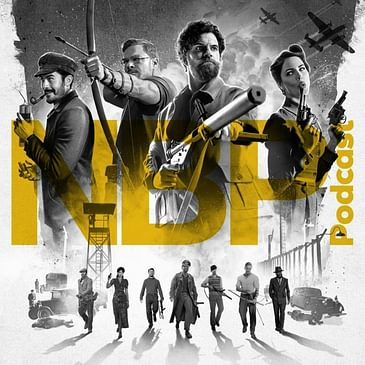SIGN UP FOR REGAL UNLIMITED W/ PROMO CODE - REGALNBP24 - https://regmovies.onelink.me/4207629222/q4j9urzs
"The Ministry Of Ungentlemanly Warfare" is a slick, suave, and effortlessly cool WWII action film directed by Guy Ritchie with a star-studded cast that includes Henry Cavill, Eiza González, Alan Ritchson, Alex Pettyfer, Hero Fiennes Tiffin, Babs Olusanmokun, Henry Golding & Cary Elwes. Pulling from real-life history based on the Damien Lewis book "The Ministry of Ungentlemanly Warfare: How Churchill's Secret Warriors Set Europe Ablaze and Gave Birth to Modern Black Ops" co-writer Arash Amel set out to create "The Dirty Dozen meets Oceans Eleven, directed by Guy Ritchie." Amel was kind enough to spend some time talking with us about his experience writing the film which is now playing in theaters from Lionsgate. Please be sure to check out the film and enjoy our conversation. Thank you!
Check out more on NextBestPicture.com
Please subscribe on...
SoundCloud - https://soundcloud.com/nextbestpicturepodcast
Apple Podcasts - https://itunes.apple.com/us/podcast/negs-best-film-podcast/id1087678387?mt=2
Spotify - https://open.spotify.com/show/7IMIzpYehTqeUa1d9EC4jT
YouTube - https://www.youtube.com/channel/UCWA7KiotcWmHiYYy6wJqwOw
And be sure to help support us on Patreon for as little as $1 a month at https://www.patreon.com/NextBestPicture
Learn more about your ad choices. Visit megaphone.fm/adchoices


